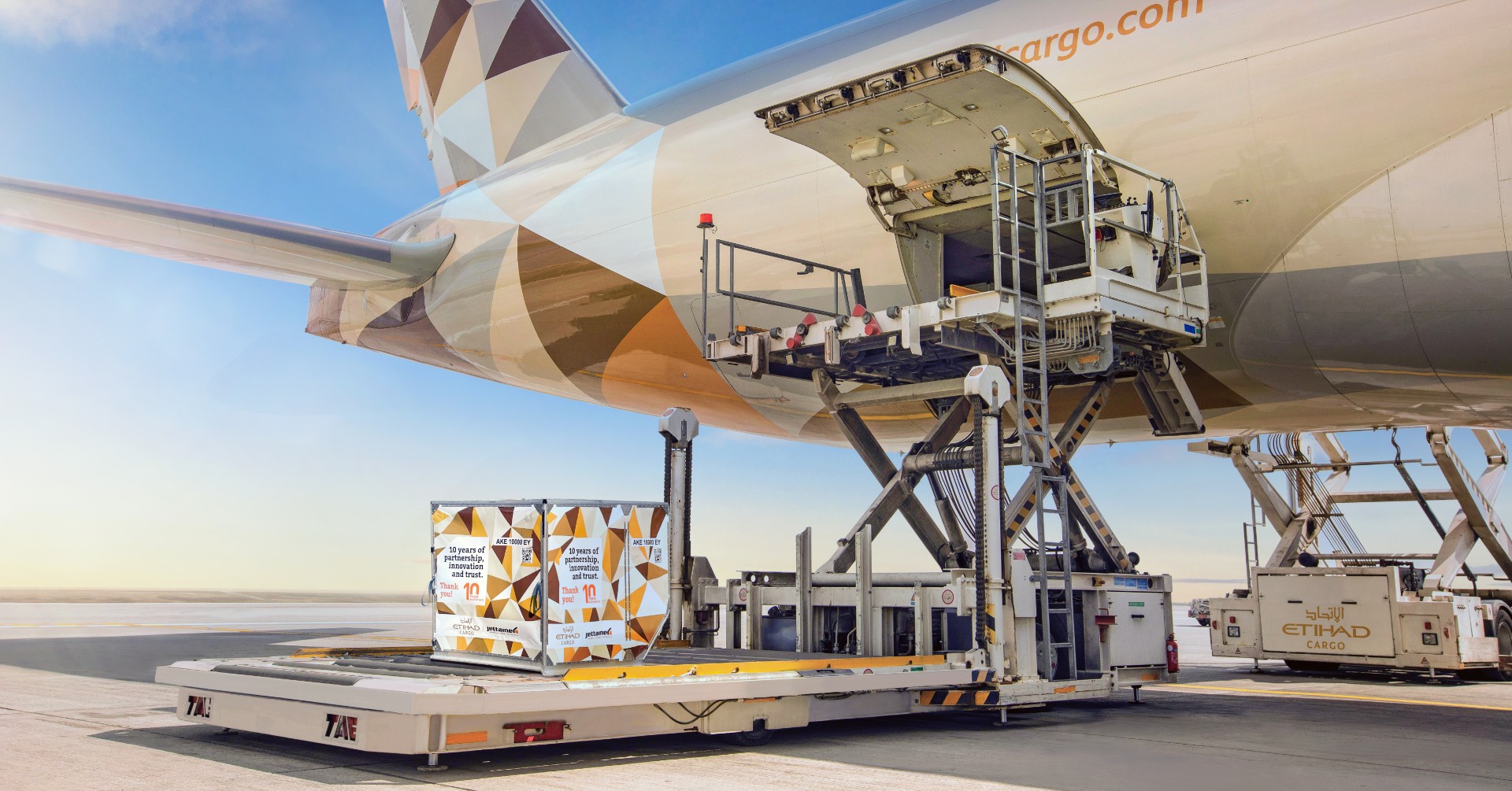Etihad Cargo takes a disciplined approach to capacity management

Etihad Cargo is taking a disciplined approach to its air cargo strategy as the market switches to a more balanced footing from one of capacity shortages.
Speaking to Air Cargo News, Etihad Cargo director west Mark Faulkner, who joined the airline in mid-2021, says that softer demand levels experienced over the past year have come at a time when passenger airlines have been returning capacity.
To meet these changing conditions, he says that Etihad Cargo has adopted a disciplined approach to capacity and yield management.
“The market is at the point of adaptation from what was the two-year Covid period, with a strong cargo performance and strong yields, to a market where far more capacity came in over the summer period than we have seen for a number of years,” he says.
“We have remained disciplined on that front and our fleet is rationalised now from where it was prior to my time.”
He explains that pre-Covid the airline had a fleet of 106 aircraft, but that number is now down to 66, including five Boeing B777 freighters, with additional aircraft expected in 2023.
“Even now we would love more capacity out of key markets but actually keeping our discipline around our revenue management activity, around what we charge our customers and around the service that we have and give them remains at the top level,” he says.
“We’ve got to fill those planes and we have got to fill them in the right way and deliver to our customers the service that they are paying for.
“We are not going to go to the bottom on yield, we will retain our discipline because we believe and we feel that we have a product, product portfolio and service that demands that.”
Interlines return
One way Etihad has been able to fill its aircraft is through the re-establishment of its interline partnerships.
Faulkner explains that during the Covid period airlines were able to fill cargo space more easily because of the high levels of demand and lower capacity and therefore interline agreements were not a priority.
However, these agreements are making a return: “We have been focussed on [interline], especially in the west, and we have been talking to a lot of partners, including customers, around targeting capacity.
“Is there an opportunity where people have excess capacity for us to capitalise on that and find a commercial agreement that works for everyone?”
Faulkner also points out that, on some flights, capacity is still in short supply due to the return of passengers.
He explains that on longer routes, such as New York, Washington and Chicago, a hold full of passenger bags can limit the amount of cargo that can be transported.
While Faulkner says Etihad’s fleet rationalisation is partly driven by the airline’s disciplined approach to adding capacity, it has also allowed Etihad to concentrate its fleet on more modern and fuel-efficient aircraft, such as the B787.
The carrier also offers Sustainable Aviation Fuel (SAF) and offsetting programmes and recently announced that DSV has become the first company to purchase Etihad Cargo’s sustainable aviation fuel (SAF) to offset the carbon emissions of a flight.
Etihad has been a leader in the adoption of SAF, but Faulkner believes there is still more work to be done at an industry level.
“What we are trying to do is change the way we work a little bit. At the moment, when we talk about really big shipments, we give a price but also offer SAF or offsets,” Faulkner says.
“But how do we bring that type of approach into how we sell so it becomes a staple part of what we are doing rather than something we do occasionally?
“We have started on this process and I do think we have made some steps forward to integrate that approach in terms of SAF but there is plenty still to do.”
Looking at fleet, Etihad Cargo made the headlines earlier this year when it became one of the first carriers to order the recently launched Airbus A350 freighter.
In total, the carrier has ordered seven of the 109 tonne capacity aircraft with deliveries expected to begin in 2026.
The aircraft are in line with Etihad’s sustainability ambitions and fully meet ICAO’s enhanced CO₂ emissions standards that will come into effect in 2027.
Faulkner says that the airline will also take delivery of passenger B787s and A350s, which could create the opportunity to convert some of its existing older B777s if required.
He points out that Etihad Engineering has a partnership with IAI on conversion lines in Abu Dhabi, which includes work on the B777 freighter.
Looking ahead to next year, Faulkner thinks it will be a mixed year.
“I think 2023 looks challenging and our customers have reflected that,” Faulkner says. “We are still filling our flights and we are still doing so with yield discipline.
“But the market is going to fluctuate and quarter one next year could be an interesting one.”
He also points out that China is slowly opening up after Covid, and Etihad Cargo has added capacity to the region with the introduction of direct flights to Guangzhou and the reinstatement of a service from Shanghai to Abu Dhabi via Chennai.
He adds: “You can’t ignore the macro environment, it has changes and capacity has come in and demand has dropped, inflation is hitting all countries in the world.
“But we are confident in our approach, in terms of our network, in terms of our product mix, in terms of how we keep going back to our customers and ensuring that we are their customer of choice.”
